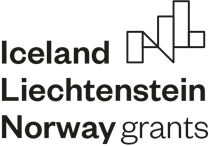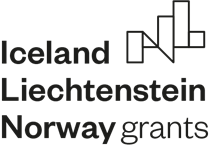
The project seeks to develop specialized concrete for the long-term storage of hazardous waste, which can be immobilized in concrete containers or directly in the concrete mass.
Description:
The project aims to create new concretes and study their properties, partly using shale ash as cementing material. Among all the Baltic States, Latvia produces the most cement. The admixture of oil shale ash (energy sector waste in Estonia) with standard cement allows the production of specialized cement with low consumption of natural and energy resources, reducing the pollution caused by the industry and the cost of cement / concrete, as well as CO2 emissions. In addition, specific properties of such concrete are predicted – the required strength is easily achieved and poor filtration of heavy metal impurities through the concrete mass. The above describes the development of specialized concrete for a very important application – long-term storage of hazardous waste by immobilizing them in concrete containers or directly in the concrete mass. It is also possible to build protective structures in the radioactivity industry. There are several sources of hazardous waste in the Baltic and Nordic countries, from highly radioactive waste directly related to the use of nuclear energy and specific components of medical equipment to toxic substances or metals with insignificant radioactivity that can occur in various sectors such as metal extraction and recycling. An example of a source of large-scale radioactive waste of all stages is the decommissioning of the Ignalina Nuclear Power Plant (NPP). At the time of writing, most of the Ignalina NPP radioactive waste is still in temporary storage sites and a long-term solution is still being sought. The long-term lack of hazardous waste storage solutions and technologies is a problem for the entire Baltic region.
Project no.: EEA-RESEARCH-165
Total project financing: 895,661.25 EUR
Grant financing: 761,312.06 EUR
Coordinator – Riga Technical University (Latvia)
Partners:
UiT The Arctic University of Norway (Norway)
Lithuanian Energy Institute (Lithuania)
University of Tartu (Estonia)



Project Team
| Name, surname | Office | phone. | |
|---|---|---|---|
|
LEI Representative |
|||
| Mindaugas Vaišnoras | 414-AK | +37037401954 | Mindaugas.Vaisnoras@lei.lt |
|
Project Team |
|||
| Egidijus Babilas | 431-AK | +37037401850 | Egidijus.Babilas@lei.lt |
| Algirdas Kaliatka | 406-AK | +37037401903 | Algirdas.Kaliatka@lei.lt |
| Jūratė Čėsnienė | |||
| Regina Kalpokaitė Dičkuvienė | 316-LK | +37037401984 | Regina.Kalpokaite-Dickuviene@lei.lt |
| Rolandas Urbonas | |||
| Raimondas Pabarčius | 409-AK | +37037401919 | Raimondas.Pabarcius@lei.lt |
| Andrius Slavickas | 407-AK | +37037401870 | Andrius.Slavickas@lei.lt |
| Simona Breidokaitė | 315-AK | +37037401973 | Simona.Breidokaite@lei.lt |
| Inna Pitak | 137-LK | +37037401908 | Inna.Pitak@lei.lt |
| Algis Makštys | 315-LK | +37037401910 | Algis.Makstys@lei.lt |





